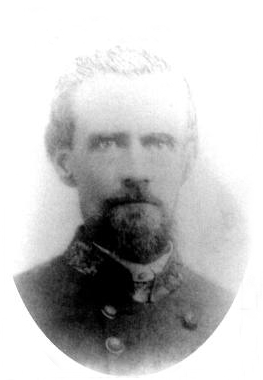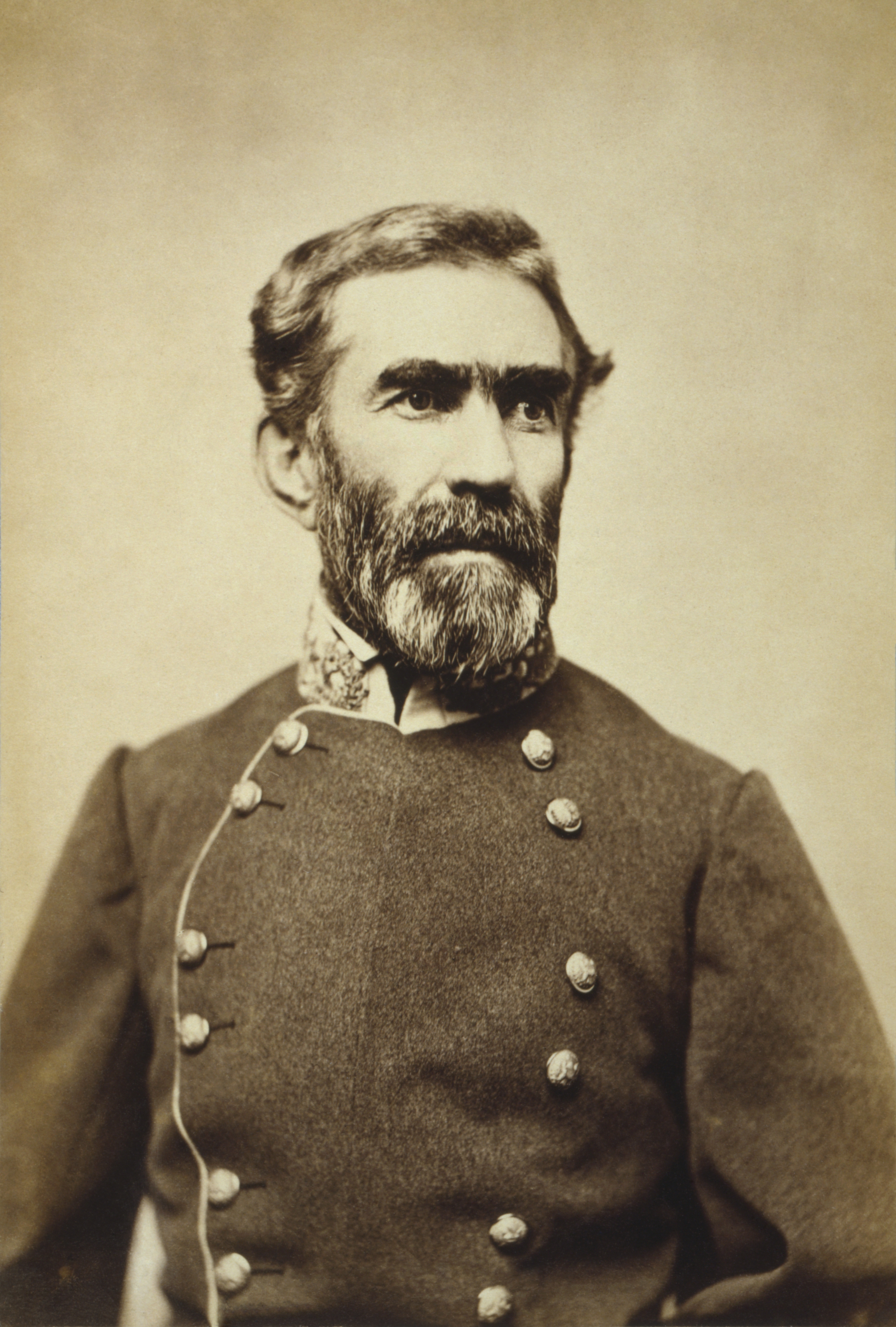|
Mark Perrin Lowrey
Mark Perrin Lowrey (December 30, 1828 – February 27, 1885) was a Southern Baptist preacher otherwise known as the "Preacher General". He is known for being a Confederate brigadier general during the Civil War, for his works in the Mississippi Southern Baptist Convention, and for founding Blue Mountain College. Early life and career Mark Perrin Lowrey was born in 1828, in McNairy County, Tennessee, to Adam and Marguerite (Doss) Lowrey.Wakelyn, p. 291. His parents had immigrated to America from England and Ireland, and Lowrey received no formal education.Warner, p. 195. His father died from yellow fever in Natchez Mississippi, when Lowrey was young.Rosewell G. Lowrey's "Lowrey (Mark Perrin) Autobiographical Essay Summary" In 1843, he moved with his family to |
McNairy County, Tennessee
McNairy County is a County (United States), county located in the U.S. state of Tennessee. As of the 2010 United States Census, 2010 census, the population was 26,075. Its county seat is Selmer, Tennessee, Selmer. McNairy County is located along Tennessee's border with the state of Mississippi. Sheriff Buford Pusser, whose story was told in the ''Walking Tall (1973 film), Walking Tall'' series of movies, was the sheriff of McNairy County from 1964 to 1970.Buford Pusser, the Man, his Career, and Tragedies , Buford Pusser Museum website; retrieved October 23, 2013. McNairy County is the location of the Coon Creek Science Center, a notable fossil site that preserves Late Cretaceous marine shells and vertebrate remains (such as mosasaurs). The postwar musical environment of the count ... [...More Info...] [...Related Items...] OR: [Wikipedia] [Google] [Baidu] |
Colonel
Colonel (abbreviated as Col., Col or COL) is a senior military officer rank used in many countries. It is also used in some police forces and paramilitary organizations. In the 17th, 18th and 19th centuries, a colonel was typically in charge of a regiment in an army. Modern usage varies greatly, and in some cases, the term is used as an honorific title that may have no direct relationship to military service. The rank of colonel is typically above the rank of lieutenant colonel. The rank above colonel is typically called brigadier, brigade general or brigadier general. In some smaller military forces, such as those of Monaco or the Vatican, colonel is the highest rank. Equivalent naval ranks may be called captain or ship-of-the-line captain. In the Commonwealth's air force ranking system, the equivalent rank is group captain. History and origins By the end of the late medieval period, a group of "companies" was referred to as a "column" of an army. According to Raymond Ol ... [...More Info...] [...Related Items...] OR: [Wikipedia] [Google] [Baidu] |
Annah Walker Robinson Watson
Annah Robinson Watson (1848–1930) was an American author, the founding member and president of the Nineteenth Century Club, and a collector of American folklore. Early life Watson was born Annah Walker Robinson on the Taylor homestead, "Springfields", near Louisville, Kentucky, to Mary Louise Taylor Robinson and Archibald Magill Robinson., she was the granddaughter of Hancock Taylor, a brother of President Zachariah Taylor. Watson was described as a "romantic, poetic, imaginative child". After some years in the countryside, her family moved to Louisville, and Watson received an education there and later in Chicago. Written works After completing her studies, she entered society as a poet. She continued to write, publishing "Baby's Mission", which received widespread popularity and was published in the London journal ''Chatterbox''. She also won a contest in the New York ''Churchman'' for best lullaby. In addition to publishing many poems and prose works under her own name, ... [...More Info...] [...Related Items...] OR: [Wikipedia] [Google] [Baidu] |
David J
David John Haskins (born 24 April 1957, Northampton, Northamptonshire, England), better known as David J, is a British alternative rock musician, producer, and writer. He is the bassist for the gothic rock band Bauhaus and for Love and Rockets. He has composed the scores for a number of plays and films, and also wrote and directed his own plays, ''Silver for Gold (The Odyssey of Edie Sedgwick)'', in 2008, which was restaged at REDCAT in Los Angeles in 2011, and ''The Chanteuse and The Devil's Muse'' in 2011. His artwork has been shown in galleries internationally, and he has been a resident DJ at venues such as the Knitting Factory. David J has released a number of singles and solo albums, and in 1990 he released one of the first No. 1 hits on the then nascent Modern Rock Tracks charts, with "I'll Be Your Chauffeur". His most recent single, "The Day That David Bowie Died" entered the UK vinyl singles chart at number 4 in 2016. The track appears on his double album, ''Vaga ... [...More Info...] [...Related Items...] OR: [Wikipedia] [Google] [Baidu] |
List Of American Civil War Generals (Confederate)
Confederate generals __NOTOC__ * Assigned to duty by E. Kirby Smith * Incomplete appointments * State militia generals The Confederate and United States processes for appointment, nomination and confirmation of general officers were essentially the same. The military laws of the United States required that a person be nominated as a general officer by the president and be confirmed by the Senate and that his commission be signed and sealed by the president. Despite legal interpretations that would preclude posthumous confirmation of appointments or delivery of commissions, the U.S. Senate and the Confederate Senate confirmed a few appointments of officers known to be dead and did not recall or revoke a few other confirmed appointments for officers who had recently died or died before receiving their commissions. No brevet appointments were made in the Confederate States Army but twenty acting or temporary general officers were authorized by and appointed under Confederate Stat ... [...More Info...] [...Related Items...] OR: [Wikipedia] [Google] [Baidu] |
Patrick Cleburne
Major-General Patrick Ronayne Cleburne ( ; March 16, 1828November 30, 1864) was a senior officer of the Confederate States Army who commanded infantry in the Western Theater of the American Civil War. Born in Ireland, Cleburne served in the 41st Regiment of Foot of the British Army after failing to gain entrance into Trinity College of Medicine, Dublin in 1846. He served at Fort Westmorland on Spike Island and was present on the island in 1849 when Queen Victoria visited Cork Harbour. Three years after joining the Army, he immigrated to the United States. At the beginning of the American Civil War, Cleburne sided with the Confederate States. He progressed from being a private soldier in the local militia to a division commander. He participated in many unsuccessful military campaigns, especially the Battle of Stones River, the Battle of Missionary Ridge and the Battle of Ringgold Gap. He was also present at the Battle of Shiloh. Known as the "Stonewall of the West", Cleburne ... [...More Info...] [...Related Items...] OR: [Wikipedia] [Google] [Baidu] |
Appomattox Court House National Historical Park
The Appomattox Court House National Historical Park is a preserved 19th-century village in Appomattox County, Virginia. The village is famous for the site of the Battle of Appomattox Court House, and contains the house of Wilmer McLean, where the surrender of the Army of Northern Virginia under Robert E. Lee to Union commander Ulysses S. Grant took place on April 9, 1865, effectively ending the American Civil War. The McLean House was the site of the surrender conference, but the village itself was named for the presence nearby of what is now preserved as the Old Appomattox Court House. The park was established in 1935. The village was made a national monument in 1940 and a national historical park in 1954. It is located about east of Appomattox, Virginia, the location of the Appomattox Station and the "new" Appomattox Court House. It is in the center of the state about east of Lynchburg, Virginia. The park has a couple of dozen restored buildings, a few ruins, and some ce ... [...More Info...] [...Related Items...] OR: [Wikipedia] [Google] [Baidu] |
M P Lowrey CSA ACW
M, or m, is the thirteenth letter in the Latin alphabet, used in the modern English alphabet, the alphabets of other western European languages and others worldwide. Its name in English is ''em'' (pronounced ), plural ''ems''. History The letter M is derived from the Phoenician Mem, via the Greek Mu (Μ, μ). Semitic Mem is most likely derived from a " Proto-Sinaitic" (Bronze Age) adoption of the "water" ideogram in Egyptian writing. The Egyptian sign had the acrophonic value , from the Egyptian word for "water", ''nt''; the adoption as the Semitic letter for was presumably also on acrophonic grounds, from the Semitic word for "water", '' *mā(y)-''. Use in writing systems The letter represents the bilabial nasal consonant sound in the orthography of Latin as well as in that of many modern languages, and also in the International Phonetic Alphabet. In English, the Oxford English Dictionary (first edition) says that is sometimes a vowel, in words like ''sp ... [...More Info...] [...Related Items...] OR: [Wikipedia] [Google] [Baidu] |
Battle Of Murfreesboro
The Battle of Stones River, also known as the Second Battle of Murfreesboro, was a battle fought from December 31, 1862, to January 2, 1863, in Middle Tennessee, as the culmination of the Stones River Campaign in the Western Theater of the American Civil War. Of the major battles of the war, Stones River had the highest percentage of casualties on both sides. The battle ended in Union victory after the Confederate army's withdrawal on January 3, largely due to a series of tactical miscalculations by Confederate General Braxton Bragg, but the victory was costly for the Union army. Nevertheless, it was an important victory for the Union because it provided a much-needed boost in morale after the Union's recent defeat at Fredericksburg and also reinforced President Abraham Lincoln's foundation for issuing the Emancipation Proclamation, which ultimately discouraged European powers from intervening on the Confederacy's behalf. Union Maj. Gen. William S. Rosecrans's Army of the Cu ... [...More Info...] [...Related Items...] OR: [Wikipedia] [Google] [Baidu] |
Battle Of Chickamauga
The Battle of Chickamauga, fought on September 19–20, 1863, between United States, U.S. and Confederate States of America, Confederate forces in the American Civil War, marked the end of a Union Army, Union offensive, the Chickamauga Campaign, in southeastern Tennessee and northwestern Georgia (U.S. state), Georgia. It was the first major battle of the war fought in Georgia, the most significant Union defeat in the Western Theater of the American Civil War, Western Theater, and involved the second-highest number of casualties after the Battle of Gettysburg. The battle was fought between the Army of the Cumberland under major general (United States), Maj. Gen. William Rosecrans and the Confederate States Army, Confederate Army of Tennessee under General (CSA), Gen. Braxton Bragg, and was named for Chickamauga Creek. The West Chickamauga Creek meanders near and forms the southeast boundary of the battle area and the park in northwest Georgia. (The South Chickamauga ultimately fl ... [...More Info...] [...Related Items...] OR: [Wikipedia] [Google] [Baidu] |
Kentucky Campaign
The Confederate Heartland Offensive (August 14 – October 10, 1862), also known as the Kentucky Campaign, was an American Civil War campaign conducted by the Confederate States Army in Tennessee and Kentucky where Generals Braxton Bragg and Edmund Kirby Smith tried to draw neutral Kentucky into the Confederacy by outflanking Union troops under Major General Don Carlos Buell. Though they scored some successes, notably a tactical win at Perryville, they soon retreated, leaving Kentucky primarily under Union control for the rest of the war. Background Military situation Western campaigns by Union forces earlier in 1862 had reaped much progress. The Tennessee and Cumberland Rivers had been opened to the U.S. Navy after successes at the battles of Fort Henry and Fort Donelson. The railroad hub at Corinth had been evacuated by the Confederates, causing most of West Tennessee to fall into Union control. New Orleans, the Confederacy's largest city at that time, had been captured ... [...More Info...] [...Related Items...] OR: [Wikipedia] [Google] [Baidu] |






